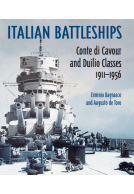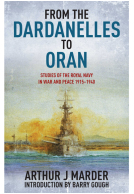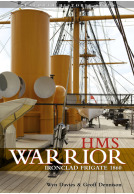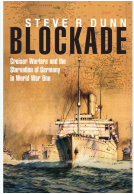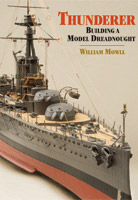Italian Heavy Cruisers (ePub)
From Trento to Bolzano

File Size: 42.5 MB (.epub)
Illustrations: 12 colour and 280 mono illustrations Integrated
ISBN: 9781399098861
Published: 30th January 2023
| Other formats available | Price |
|---|---|
| Italian Heavy Cruisers Hardback Add to Basket | £28.00 |
When the Washington Naval Treaty of 1922 effectively banned the building of battleships, competition between the major navies concentrated on the next most powerful category, heavy cruisers limited to 10,000 tons displacement and 8-inch guns. Italy followed this trend, the first design for what became Trento and Trieste being ordered in 1924. These were the fastest of the first generation ‘Treaty’ cruisers but were very lightly armoured, and the succeeding Zara class of four ships were slower but better protected. However, before the final ship of this class (Pola) had been completed, there was a return to the earlier fast, lightly protected concept with the Bolzano, although this ship also incorporated aspects of the Zara design.
The political background, design history and technical features of these classes are covered in great depth in this volume. They were important ships, subject to incremental improvement so no two were identical, and modelmakers in particular will appreciate the space devoted to the variations in appearance, using both description and illustration.
As major units of the Italian battlefleet, they were more active than most during the war and their careers are fully detailed, including analyses of damage suffered. Tragically, they were all sunk and the full circumstances of each loss is explored.
As befits a technical history, the book is thoroughly illustrated with ship and armament plans, detail drawings and colour camouflage schemes, as well as an outstanding collection of photographs. Translated from the same series that produced the highly successful Italian Battleships, this volume is a fitting companion.
As featured in
Storia Militare - No.359, August 2023
From the same series that gave us the very successful ‘Italian Battleships’ this is not just a fitting companion but an exemplar of excellence in its own right. This work is a worthy addition to the library of the enthusiast as well as the specialist in naval history, even better alongside the earlier volume ‘Italian Battleships’.
Martin Willoughby, The Wessex Branch of the Western Front Association
It is a fascinating insight into the derivation, design and operation of what, ultimately, proved to be a flawed concept.
Naval Review
Read the Full Review Here
The detail is first class and coupled to plenty of archive photos, copies of original plans as well as the colour artwork, I found this a fascinating read, covering these attractive looking ships.
Military Model Scene
Read the Full Review Here
This is an excellent book. It combines political, strategic, and financial considerations with the practicality of specifying, designing and operating ships which can contribute to naval operations both in peacetime and various levels of conflict. The technical details in this book are extensive and provide good coverage of the issues involved in bringing into service major new capabilities, and the adoption of new technology.
Australian Naval Institute
Read the review here
This volume follows a similar format that of the previous two volumes by Augusto de Toro, in conjunction with Erminio Bagnasco, describing the battleships of the Conte di Cavour, Duilio and Littorio classes. It begins with a general introduction to naval policy and cruiser design. The next three chapters are each split into two parts, the Trento Class and Bolzano, and the Zara Class, and give a technical description, a description of the weapons and fire control, and a description of the aviation facilities.
International Plastic Modellers Society, Newsletter of the Small Warship Special Interest Group – Issue 140, March 2023
The technical description includes a number of arrangement drawings which highlight the differences between individual vessels, and modifications carried out during their careers. Similarly the section descrbing weapons contains a number of technical drawings of the individual weapons and their arrangements as fitted to the cruisers. The aviation chapter completes the picture with drawings of various aircraft. The selection of photographs is good throughout, with many close-ups of the gun mountings and aircraft, including an autogyro.
Chapter 5 describes the camouflage and contains five pages of profile drawings. Chapter 6 and 7 describe the careers of the vessels, firstly before WWII, and secondly, their wartime careers. The main text completes with some conclusions and comparisons with cruisers from other nations. Finally, there are six appendices which study particular aspects of the cruisers, their designs, plans for modifications and their effectiveness.
As featured in
The Bookseller
About Maurizio Brescia
MAURIZIO BRESCIA serves on the Editorial Board of the monthly Storia Militare. He has published a number of books on Italian warships and provided illustrations for many more. For Seaforth he wrote Mussolini’s Navy published in 2012.
About Augusto De Toro
AUGUSTO DE TORO is an authority on the political and economic aspects of naval policy, and himself the author of many articles and monographs, including co-writing The Littorio Class and Italian Battleships.










